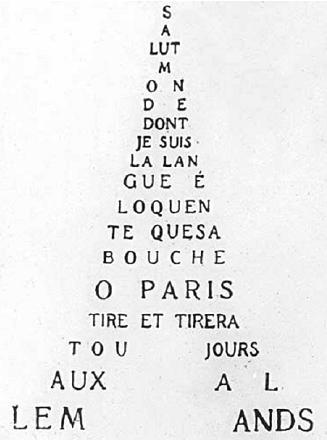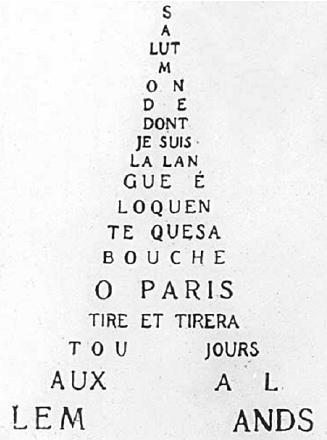
One day some decades ago, the amphibious assault vehicle in which I was riding around Camp Pendleton, California while we practiced assaulting hills and the like made an unplanned stop. I reached into one of those voluminous pockets that military uniforms tend to be covered with and pulled out a book to read while the platoon leader tried to figure out where the fuck we were. Whatcha reading, Doc?, some big, bulky Marine or another asked me. (I was a medic in the Navy. The US Marines don’t have their own medical personnel–they’re all provided by the Navy. This came as a surprise to lots of young men who volunteered to join the Navy during Vietnam thinking that there was no better way to avoid finding yourself in a rice paddy with leeches on your scrotum and somebody shooting at you than working in a naval hospital–and then found themselves in a rice paddy with leeches on their scrota and somebody shooting at them. Technically, the term for a Navy medic is hospital corpsman, but by long tradition, the Marines call us “Doc.” But, back to Camp Pendleton…)
The social animal, I said. Social psychology. (You might think that I wouldn’t remember what I was reading in the early 1980s–but, the paperback fit perfectly in my left thigh pocket. My right thigh pocket was for a bag of licorice. You never know when you will/won’t get to eat, and licorice doesn’t leave your hands covered with melted chocolate.) Social psychology…hm… I like to read about history, myself, said the big, bulky Marine. The Wars of the Roses–that was some crazy shit… The second lieutenant gave the staff sergeant an embarrassed smile and folded up his map; the big, bulky Marine and I climbed back into our hatches; and we all went back to assaulting whatever we were practicing assaulting–the Wars of the Roses would wait. In the military, every branch has their stereotypical insults for the other branches, and everyone’s insult for the Marines is that they’re stupid, but I’ll tell you this: I know exactly two guys who dropped out of high school, joined the service, and then got a doctorate, and the one who isn’t me is a Marine. (I don’t say “was” a Marine, because once a Marine, always a Marine, and they are, indeed, bad motherfuckers. “Bad motherfucker” explained in the English notes below.)
You tend to think of poets as ethereal, wispy types who are super-sensitive and probably wouldn’t be the person you would want to cover your back if you got into a fight in a metro station. However, if you’ve been paying attention to the stuff that we’ve been reading for National Poetry Month, you’re already aware that there are plenty of counter-examples to that. Case in point: Guillaume Apollinaire. He may or may not have been sensitive, but he was definitely a serious scrapper. He tried to join the army when the First World War came to France in August 1914, but was turned away due to not being a French citizen. No problem–he left Paris and headed south-east to Nice and tried again, this time successfully. He was initially assigned to an artillery unit, but this wasn’t hard-core enough for him, so he got himself transferred to a decimated infantry unit, picking up a promotion to second lieutenant in the process. (That’s a very low rank for an officer, but for an enlisted man to get promoted to it is a pretty big deal.)

Apollinaire was one of the greats of French poetry; if you’ve only heard of one French poem, it was probably his Le pont Mirabeau. One of his innovations was his role in the development of what’s known as “concrete poetry.” It is “concrete” in the sense that not just its linguistic elements, but its typographic shape are essential to the poem. The one to the left is my favorite of his works in this genre. In the form of the Eiffel Tower, the words translate something like this:
Hello, world of which I am the eloquent tongue. Oh Paris, may your tongue stick out, and stick out always, at the Germans.

Now, being poetry, it is, of course, a bit more complicated than that. What I’ve given here as “may your tongue stick out” comes from a volume of translations of Apollinaire by Anne Greet and S.I. Lockerbie that I like. “To stick one’s tongue out” is a plausible translation of tirer la bouche, but it’s not necessarily the most obvious one. Certainly it fits with the facts that (a) Apollinaire refers to la langue éloquante, “the elegant tongue,” and the Eiffel Tower does have a tongue-like shape. But, given that this was written by a guy who was putting his life on the line in the trenches at the time, I tend to think that he was playing on another meaning of the verb tirer: to fire a weapon. For a poet in an infantry unit, the metaphor of the mouth as a weapon (que sa bouche…tire et tirera toujours aux Allemands) is certainly an apt one.

The Navy eventually sent me to school, and I finished my time in the service in a cardiac catheterization lab, which over the course of some rather bizarre decades led to me being a faculty member at a medical school, where I specialize in biomedical language. Apollinaire caught a shell fragment in the temple (when a bombardment started while he was reading a literary magazine, they say); although he survived trepanning, he never fully recovered, and in his weakened condition, died in the flu epidemic of 1918. Whenever I visit the Panthéon, I take a moment to slip away from my friends and find his name on the (long) list of writers who gave their lives for France–and to pay my respects.
English notes
bad motherfucker: One of the cute things about American English is that bad–and similar words, depending on the region of the country that you’re in–can have positive connotations. (Connotation is the cultural meaning of a word, as opposed to its denotation, which you could think of as its “dictionary meaning.” Connotation and culture both start with a C; denotation and dictionary both start with a d. That’s how I remember them, at any rate.)
So: a bad motherfucker is someone who is really tough, with some implication that this toughness involves fighting. You would want to be called a bad motherfucker. When I was a kid, it was common to use bad to mean something like cool, impressive–our favorite bands were “bad,” a nice leather jacket was “bad,” etc.

Less common, but incontestably much cooler, is the use of wicked to mean “very” in front of an adjective, especially one with a positive meaning. I believe it’s a Northeast thing, although I’ve seen it as far west as Oregon. Scroll down for lots of examples.








Thank you for this adverbial use of “wicked”. We can say an equivalent is the adverbial use of “fort” before another adjective “fort beau, fort sale, fort triste”. Oh, the expression for the children’s gesture is not “tirer la bouche” but “tirer la langue”. It happens that “tirer” is also one of the hundred possibilities to mean “fuck”, “Tu l’as tirée ?”(Did you screw her ?) . And you misspelt “éloquente”, mind .
Another badass poet was François Villon . This man to me has always looked like an E.T., like Jerome Bosch . He lived around 1450, the end of the 100 years war, and was alike the XIXth century avant-garde . No wonder he became strongly promoted by Rimbaud, Verlaine, Nerval ( the same as for Poe) . He is a shining star in French poetry, the first of this new language . And more, he was the precursor of Louis-Ferdinand Céline and his followers like me 😉, mixing slang and high levels . Villon belonged to gangs of thieves and used some of their slang in his writings . He killed one or two men too, and spent quite some time in jail . But he was an immense and absolute poet . The proof ? He died young, ha ha, aroung 32 y/o .
You mentioned Apollinaire (dead at 38) whose famous Pont Mirabeau is a summit of nostalgia ” …coule la Seine, et nos amours, faut-il qu’il m’en souvienne”. Well Villon’s still now remembered verse is “Mais où sont les neiges d’antan ?”, the chorus of “La Ballade des Dames du temps jadis”(ballad of yesteryears ladies) . Too bad the English wikipedia omits his most famous oeuvre, “La Ballade des Pendus”(hanged men) .
There are two guys who fascinate me for both their life and their writings, François Villon and Boris Vian (another dead at 39) . But, considering his time and his 4 centuries ahead his successor Rimbaud I think Villon is the winner .
LikeLiked by 2 people